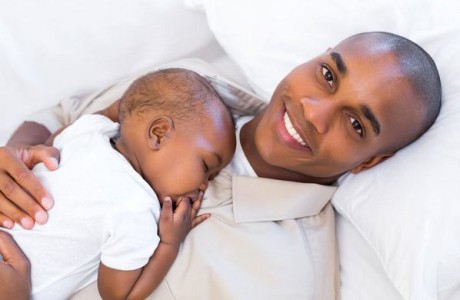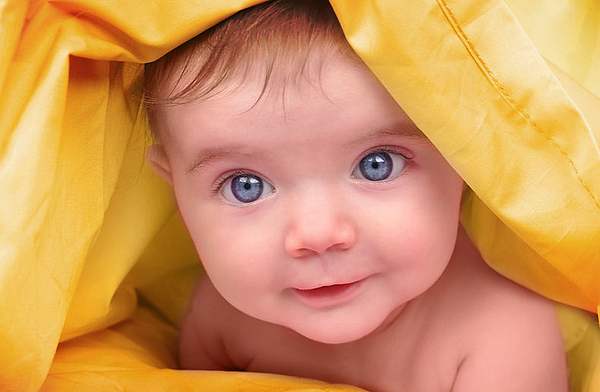Got a bun in the oven? Congratulations! For millions of us, raising a family will be the pinnacle experience of life. Ten fingers, ten toes, and then … away the money goes! Make sure you’ve stashed away plenty before your tadpole squirts out.
The urge to merge.
In much the same way it does for raising cattle to maturity (mooo), the U.S. Department of Agriculture (USDA) compiles an annual report that estimates the direct costs for raising children. These reports help parents budget for child-related expenses from birth through their 18th birthday. And children are an expensive herd—really expensive.
Bambino will cost you a bundle.
In its most recent survey, Expenditures on Children by Families, 2015 (released Jan, 2017), the USDA estimates the cost of raising a single child is $233,610. That’s almost $14,000 annually per child (based on a typical middle-income, married-couple family with two children). On average, they’ll devote about 40% of family expenditures on their children until they reach age 18.
That’s not all, Thelma. Since the report is in 2015 dollars, a baby born this year is likely to cost even more. With a modest (and likely, higher) annual inflation of 2.2%, the total you are looking to shell out is $284,570—more than a quarter-million smackers. Are you a higher income family? They spend more on their children, so bump this up to roughly $454,770. Remember nubile NeXters—this is for one kid. Here’s the lowdown:
- Housing. Keeping a roof over your little teacake, the largest slice of the pie, accounted for almost one-third of the total expense of raising a child.
- Child care. Food made up about 18% of the cost; child care and education about 16%. In the first year alone, you can easily spend $4,000–$6,000 for diapers, formula, clothing, baby furniture, gear, etc.
- Where you live. Overall, families in the urban Northeast spent the most ($253,770), followed by those in the urban West ($235,140). Those in the urban Midwest spent less ($217,020), along with those in rural areas ($193,020).
- The good news. Families with three or more children spend an average of 22% less per child. That’s because kids often share bedrooms, clothing and toys are handed down, and discounts on bulk food and child care providers.
- The bad news. If your child is enrolled in private school or has medical problems or special needs, these costs aren’t included. Annual college costs, running $45,370 for a private college and $20,090 for a public college? Cha-ching—not included! Nor are the outlays if your child remains in your home as a dependent after age 18.
A matter of degree.
Successfully raising healthy, happy children is largely a result of wise choices regarding your level of education and choice of mate. Among the well-educated, the traditional family is thriving; fewer than 10% of births to female college graduates are outside marriage. With two incomes, upper-middle-class homes are more stable and better equipped to raise children—two married lawyers are much richer than a single mom who stacks shelves.
 Robert Putnam, author of Bowling Alone (2000), describes the growing gulf between how the well-off and the poor raise their children. Working-class parents often underestimate the long-term financial and personal burden (projection trap*). They have less time to nurture their roo than college-educated parents, who have more spare capacity (see: All joy and no fun). Also poorer parents lack wider circles of professional friends they can call on to help solve a problem or open a door.
Robert Putnam, author of Bowling Alone (2000), describes the growing gulf between how the well-off and the poor raise their children. Working-class parents often underestimate the long-term financial and personal burden (projection trap*). They have less time to nurture their roo than college-educated parents, who have more spare capacity (see: All joy and no fun). Also poorer parents lack wider circles of professional friends they can call on to help solve a problem or open a door.
Today’s champion breeders.
According to the Pew Research Center (2018), the overall birth rate continues to decline. All that drop, however, is accounted for by teenagers and women in their 20s. By contrast, the number of women having a baby in their 30s has increased markedly. Why is that? Older, well-educated women are forming strong relationships with similarly brainy men. Younger ones are holding off due to personal finances. And lower-educated women are marrying up, reducing the size of the pool for blue collar men.
So, what’s the bottom line? Each child costs the equivalent of a house to raise. Successful parenting is incredibly difficult. There is no reset button if you screw it up. Think about it.
Having a baby is one of the most wonderful things in your life,
as well as the hardest thing in your life.
~ Nuno Bettencourt, lead guitarist of Extreme
* Questionable beliefs can “trap” our better judgment, leading to poor decisions and unintended consequences. In the projection trap, we underestimate the long-term effects of today’s actions. Learn more about this, and other traps, in the Young Person’s Guide to Wisdom, Power, and Life Success.
Image credit: “A young happy baby” by Angela Waye, licensed from 123rf.com (2018).





















